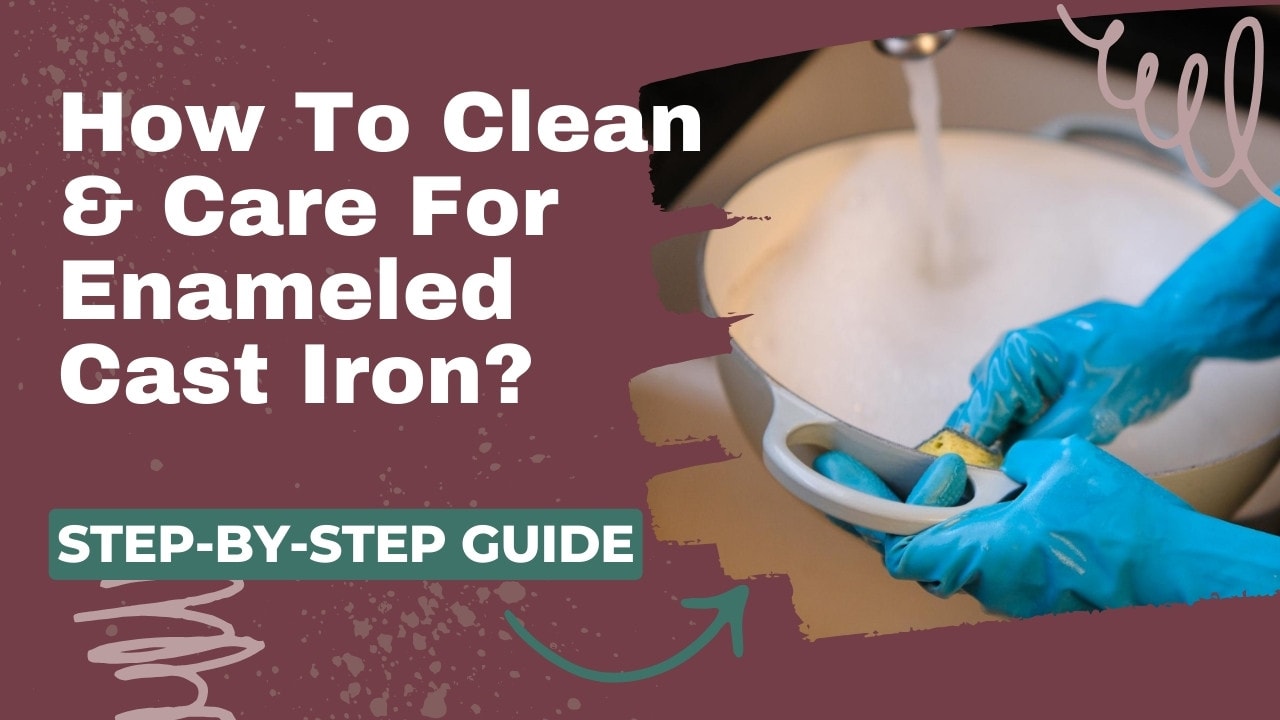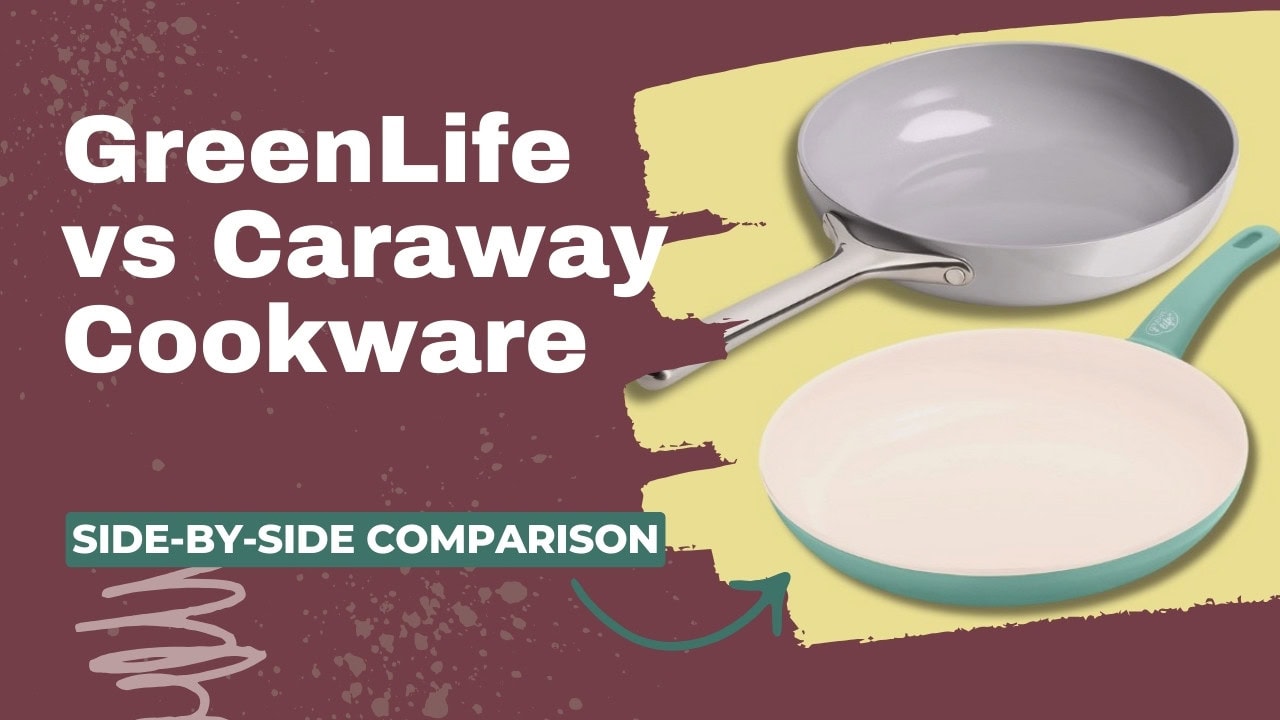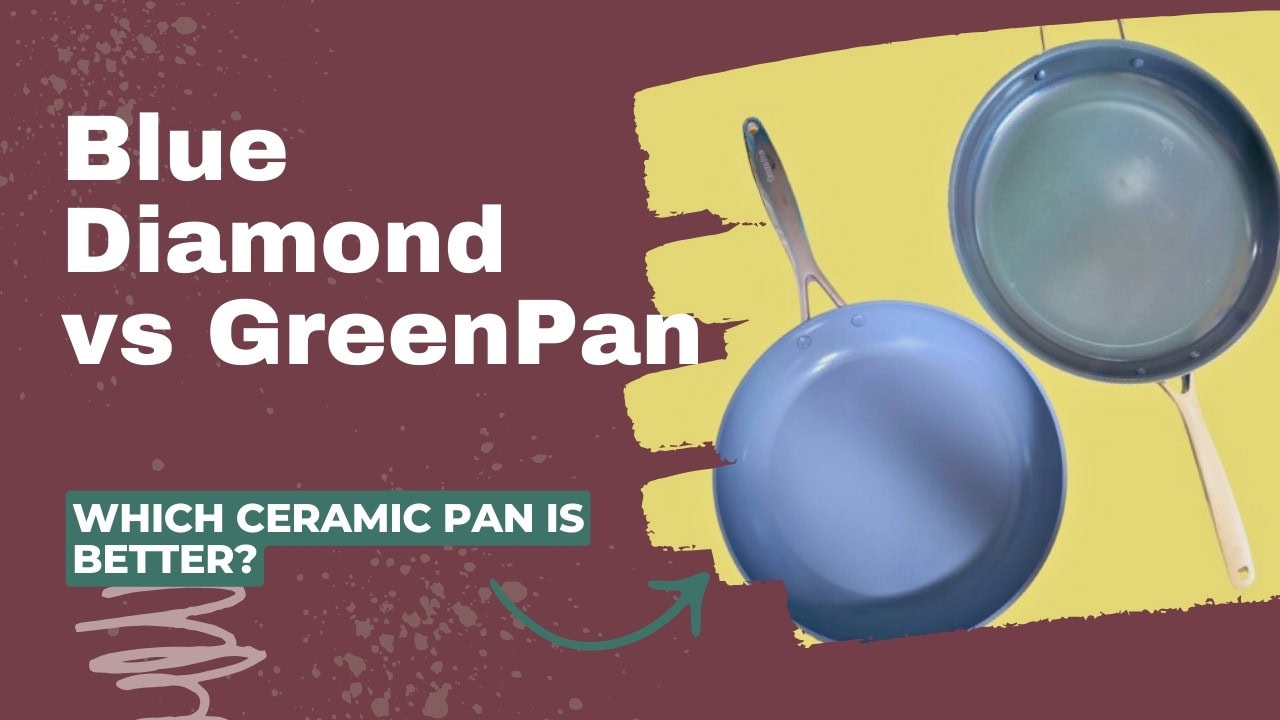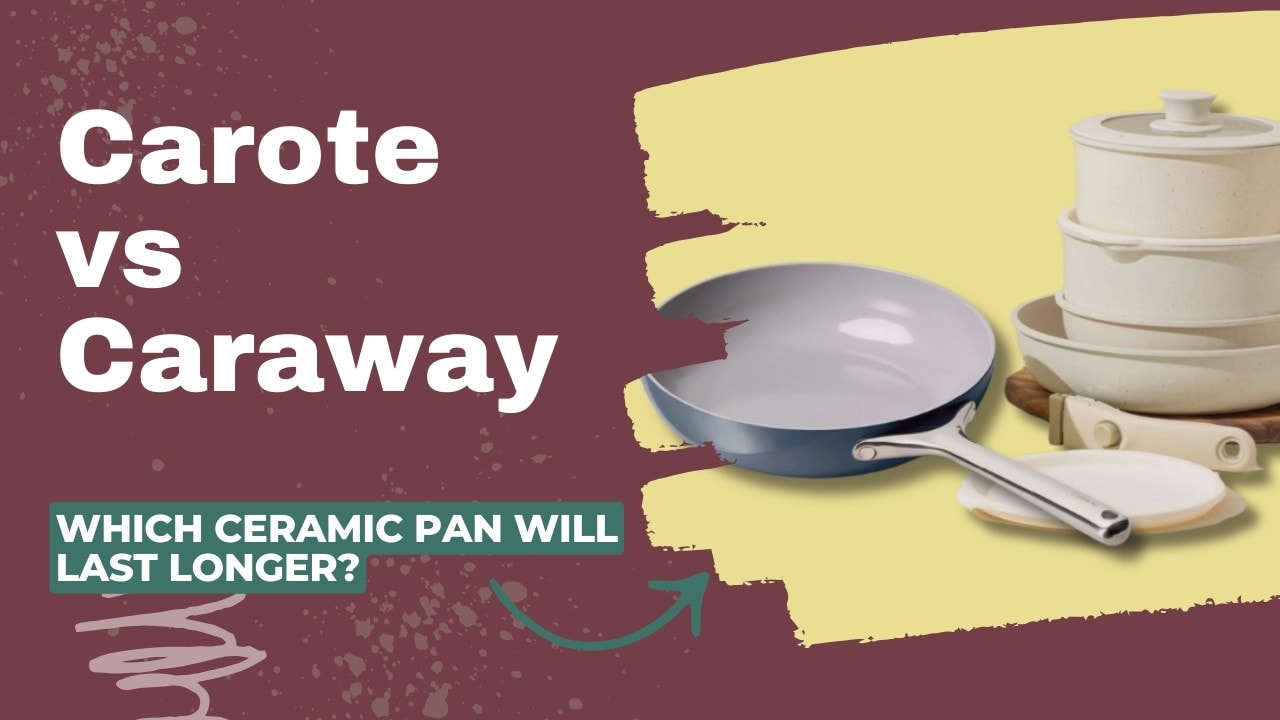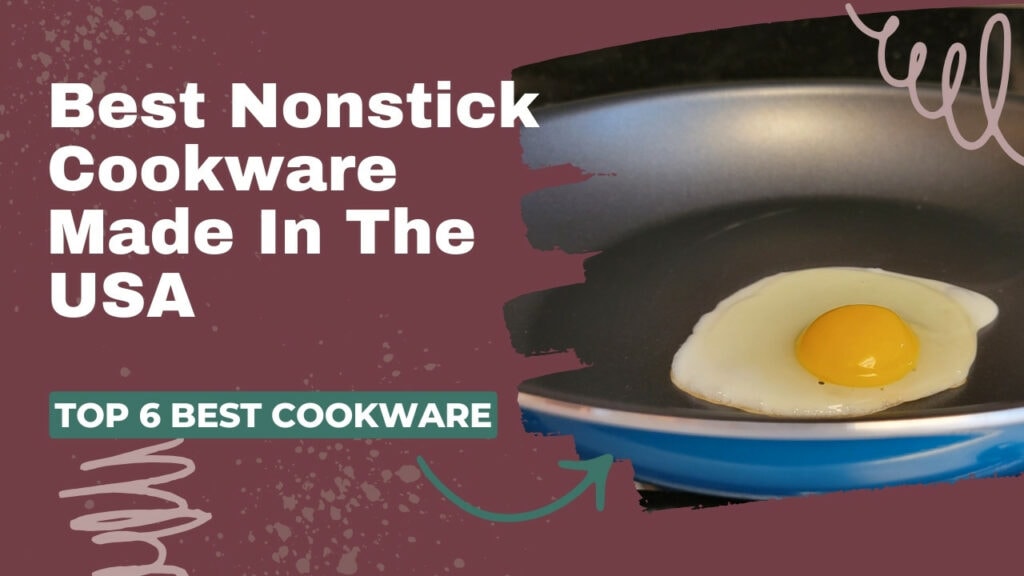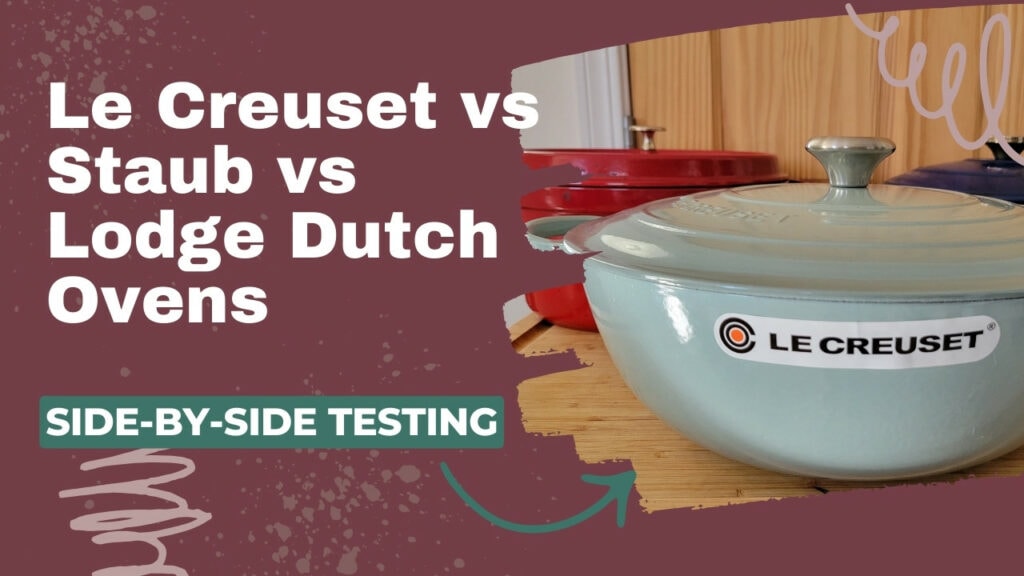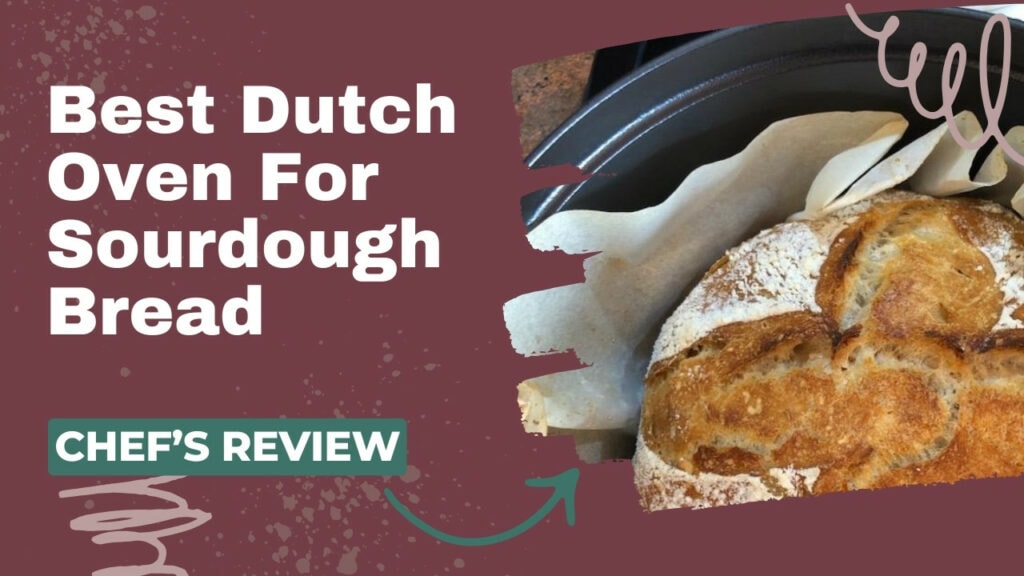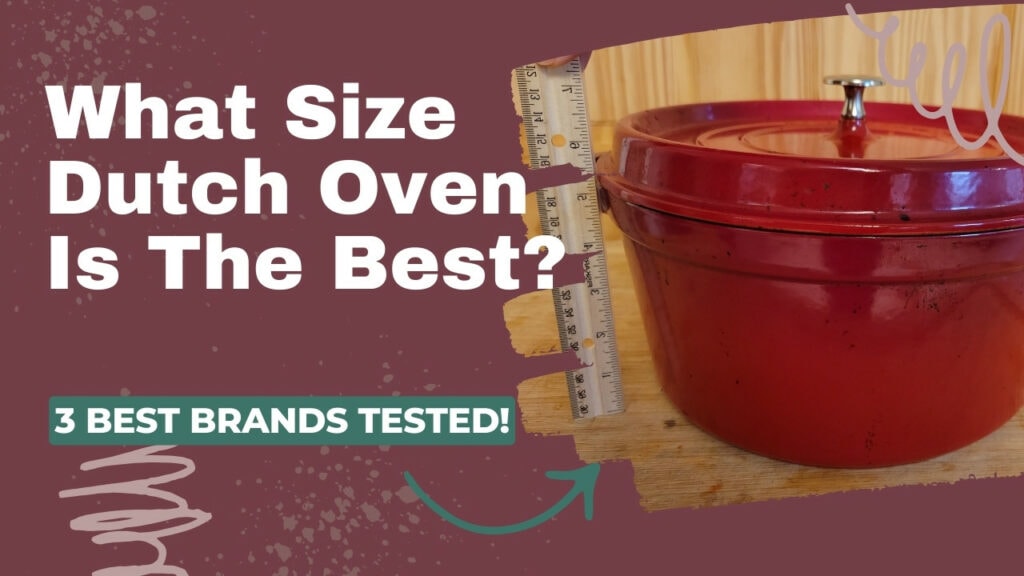I remember the day I finally invested in my Le Creuset Dutch oven. It was a significant expense, so I immediately researched ways to keep my new cookware baby in the best condition possible.
While enamel cast iron is relatively low maintenance compared to raw cast iron, it still requires some careful cleaning and care. None of it is overly complicated or time-consuming, and it’s so worth it to protect your investment.
In this article, I’m going to take you through everything you need to know about care, cleaning, stain, removal, and storage so your enamel cast iron stays in perfect condition for years to come.
How to Clean Enameled Cast Iron?
Enamel cast iron is a simple material to clean and maintain. But you must use techniques and products that won’t damage your cookware. Everyday cleaning just means washing it with hot soapy water. But occasionally, you will need to deep clean it to remove marks and stains.
Here’s how I take care of my Le Creuset enameled cast iron.
Everyday Cleaning Step-By-Step
I wish I could tell you that all you need to do is pop your pot in the dishwasher after each use, but I’m afraid it’s not that easy. Some brands may advertise that their enamel cast iron is dishwasher safe, but even those brands will contradict that in their packaging (or warranties) and recommend hand washing.
Here are the steps for everyday cleaning:
1. Allow your pan to cool fully before cleaning so you don’t burn yourself or shock the enamel.
2. Then fill the pot with hot water (as hot as you can stand) and some dish soap.
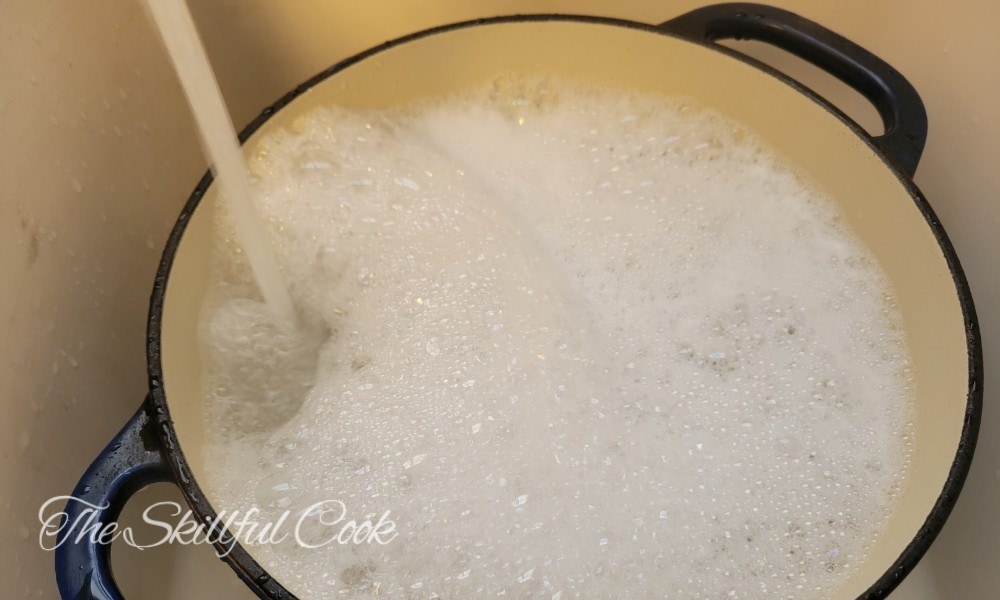
3. Start by cleaning with a soft sponge to remove the looser pieces of food.
4. If there are pieces of food sticking, do not use steel wool. A sponge with one rough side, a soft scrubbing brush, and a silicone pan scraper can do the job just as well and won’t scratch the surface.
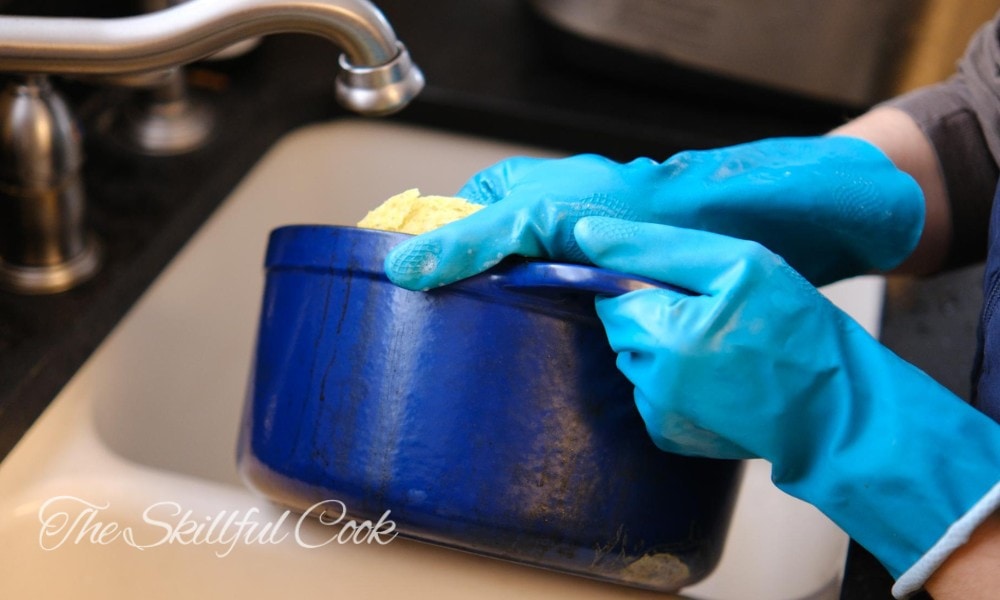
5. Once the pan is clean, dry it thoroughly, especially around the rim where the raw cast iron may be exposed.
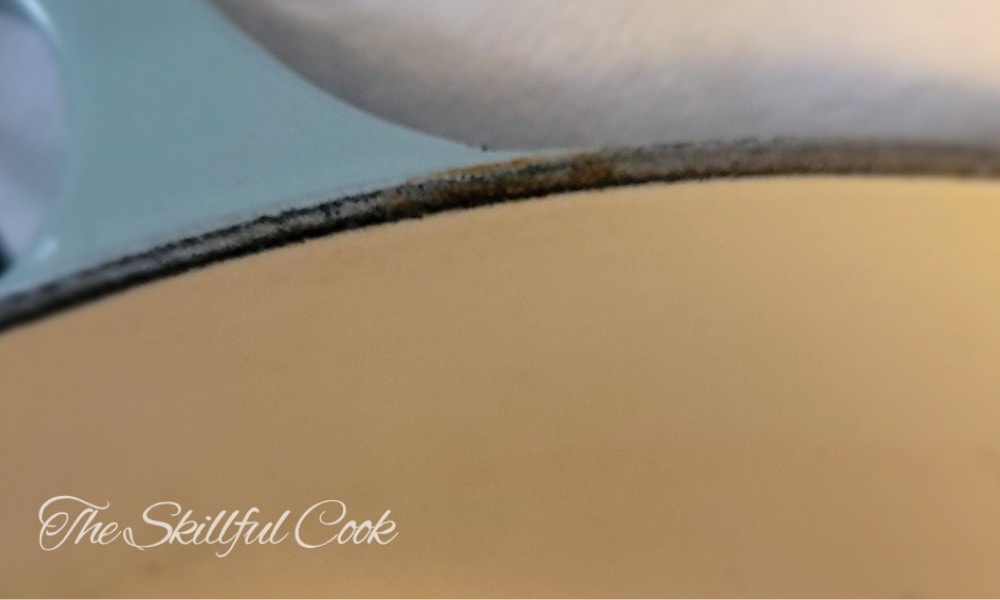
6. If your pan has raw cast iron parts, lightly oil them.
Deeper Cleaning and Stain Removal
An everyday clean is well and good, but occasionally, you will need to give your enamel cast iron a thorough deep clean. This sounds laborious, but if you follow this simple process, it shouldn’t take you too much time or effort.
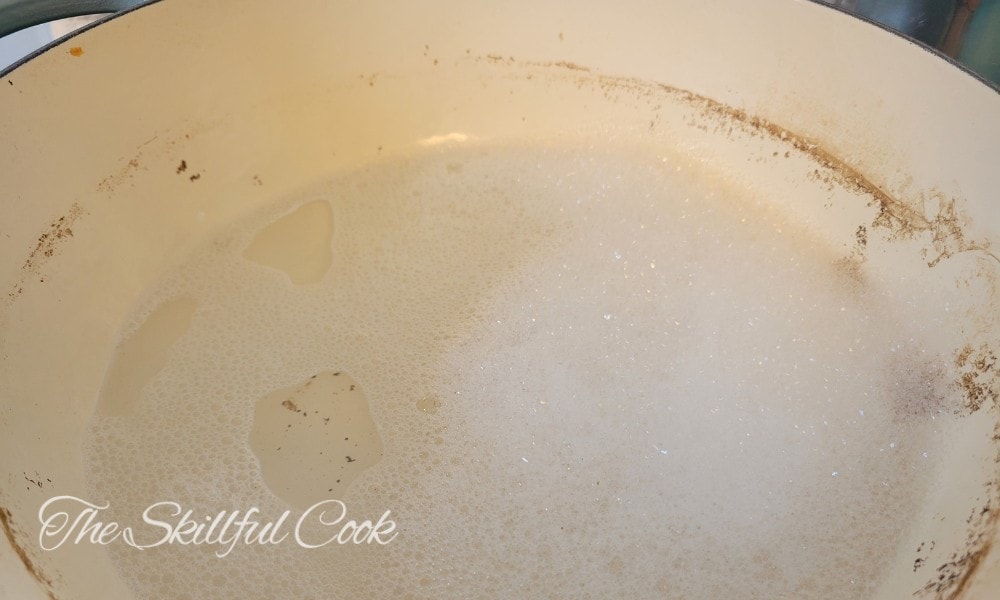
The main purpose of this deep clean is stain removal. While stains don’t affect the pan’s performance, they look unappealing, so it’s worth trying to get rid of them.
To deep clean your enamel cast iron:
- Wash your pan as described above. Make sure to give the outside a thorough clean before drying well.
- Fill the pot with enough water to cover any stains or discoloration.
- Add 2 teaspoons of baking soda.
- Bring the water to a boil on medium-low heat
- Scrape the stuck areas with a wooden spoon to dislodge them.
- Allow the water to cool before dumping it out.
- Any marks that are left should be easily rinsed off with soapy water.
Is It Safe to Soak Enamel Cast Iron in Water?
It’s totally safe to soak your enamel cast iron in water. Since it has that shiny, porcelain enamel finish, exposure to water for long periods won’t cause rust. If the rim of your pot is exposed cast iron, I recommend keeping the water level low so it doesn’t make much contact.
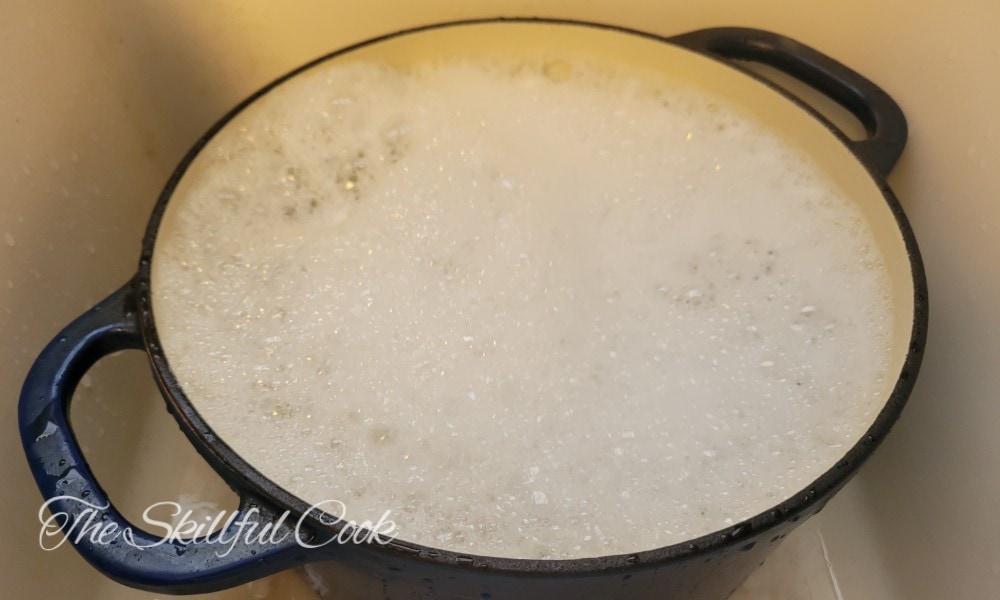
It’s worth taking the time to occasionally season the edge of your enamel cast iron to protect it from rust. But Le Creuset, Staub, and many higher-end brands have enameled edges that don’t need seasoning.
How to Handle Discoloration
Even after a deep clean, you may find that some discoloration lingers on the enamel. This isn’t harmful but ruins the piece’s appearance – especially if you use it as a decorative piece on your counter.
My secret weapon for discoloration and stubborn stains is a baking soda and vinegar paste. Combine baking soda and vinegar 1:1 and mix to make a thick paste. Dip a sponge in this mix and spread it over the discolored area. Let it sit for 20 minutes before cleaning off with a soft sponge.
How to Store Enameled Cast Iron Safely
Safe storage of your cookware often gets overlooked, but storing them incorrectly can seriously affect your pots.
I like to keep my enamel cast iron on open shelves because I can’t get enough of their bright colors. But any cool, dry spot is fine. If you’re storing your stacked pots in a cupboard, I recommend placing pot protectors between each pot to prevent chipping. These protectors also absorb extra moisture.
Maintaining Your Le Creuset and Keeping it Beautiful
When compared to raw cast iron, the maintenance of an enamel cast iron piece like a Le Creuset is fairly minimal. But there are some things to make a habit that will keep your investment cookware in great shape.
Inspect For Chips and Cracks
Whenever you grab your pot to cook, give it a quick once over to assess the condition. You’re looking for chips, large cracks, or hairline cracks. If you have a good quality piece like a Staub, the likelihood of finding chips and cracks is minimal, but it’s important to check nonetheless.
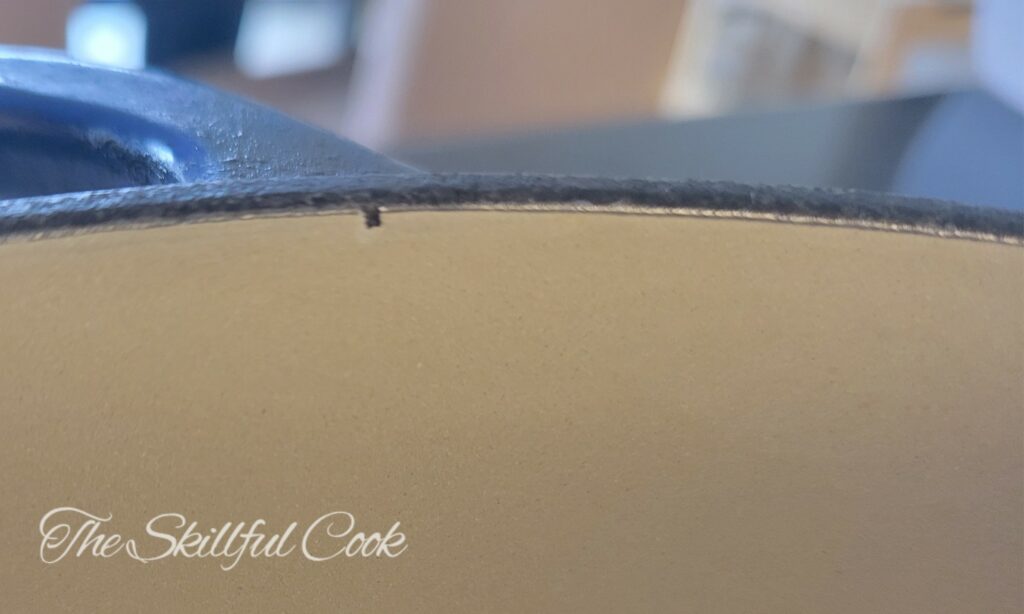
If your pot is chipped on the exterior, there is no risk to your food, but it will affect its appearance. You must also be careful to keep this area free from rust. But if it’s chipped inside, unfortunately, you need to get rid of the pot. The chips of enamel will end up in your food, which can be unpleasant or even dangerous to bite down on. My main concern is that the effects of ingesting enamel chips are unknown. For this reason, it’s much safer to simply replace the pot.
Hairline cracks are not a huge concern, but they may become larger. Hairline cracks occur when the pot is dropped or suffers from thermal shock. Larger cracks will eventually cause the same issues as chipping.
If your pan cracks or chips, I recommend investigating your pan’s warranty. High-quality enamel cast iron shouldn’t chip or crack, so you may be able to get a new pan for free.
What if the Enamel Wears Away
Fortunately, this is only usually an issue in the cheaper enamel cast iron options. The enamel wearing away will start to expose the raw cast iron beneath. Since it’s not chipping, this is not dangerous.
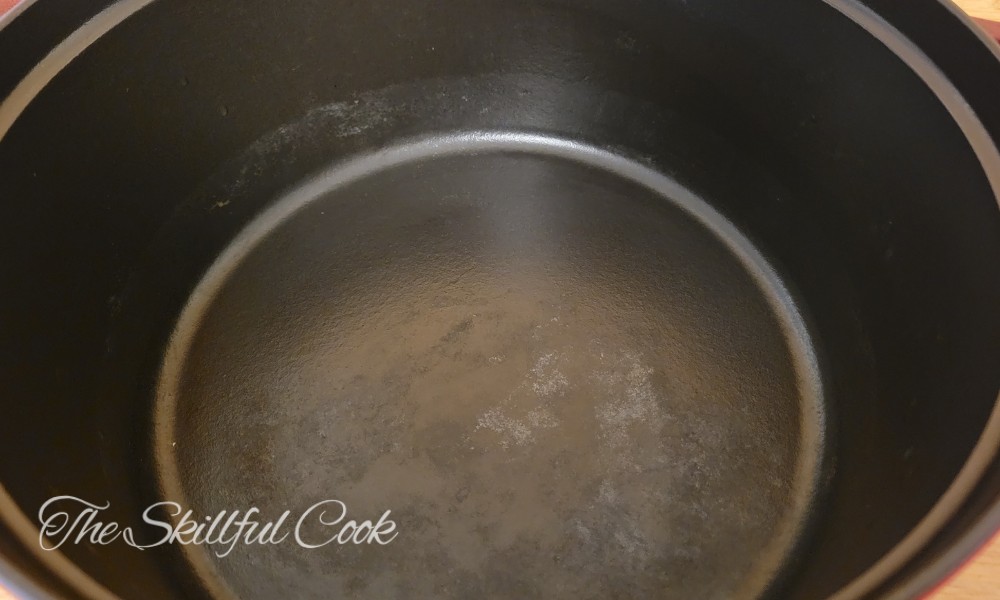
If this wearing continues and cast iron is exposed, you will need to season it. You will also be limited to dishes that aren’t acidic because the nonreactive enamel is gone. At this point, it’s worth reflecting on whether there’s any point in having an enamel cast iron piece if it’s lost so many of the qualities the coating provides.
How to Prevent Thermal Shock
Enamel cast iron may not be as susceptible to thermal shock as raw cast iron and ceramic, but there is still a chance it could happen and potentially ruin your pan.
Thermal shock happens when a material goes from hot to cold too quickly or vice versa. So, placing a hot enamel cast iron pan on a cold countertop is a recipe for disaster. To avoid thermal shock, always place your hot pot on a pot holder while it cools.
Additional Tips
I think we’ve explored the cleaning and care of enamel cast iron pretty thoroughly by now, but I wanted to leave you with a few extra tips.
How Long Does Enamel Cast Iron Last?
If you buy a high-quality enamel cast iron piece, you could have that pan for life. Cheap knock-offs will have a shorter lifespan. But if you choose a pan from the big three enamel cast iron brands – Le Creuset, Staub, or Lodge – then you’ve got an heirloom piece on your hands.
However, it is crucial to take care of your cookware. If you don’t, your pan may not only suffer damage, but you might void the warranty.
Conclusion
Investing in a beautiful enamel cast iron piece from a brand like Staub or Le Creuset is a big decision, so you’ll want to maintain your piece once you’ve taken the leap. After reading this article, I hope you feel well-equipped to take this on and keep your enamel cast iron in top condition.
Do you have any more questions about this topic? Or maybe you have your own tips that we haven’t covered? Either way, leave your comments below.

